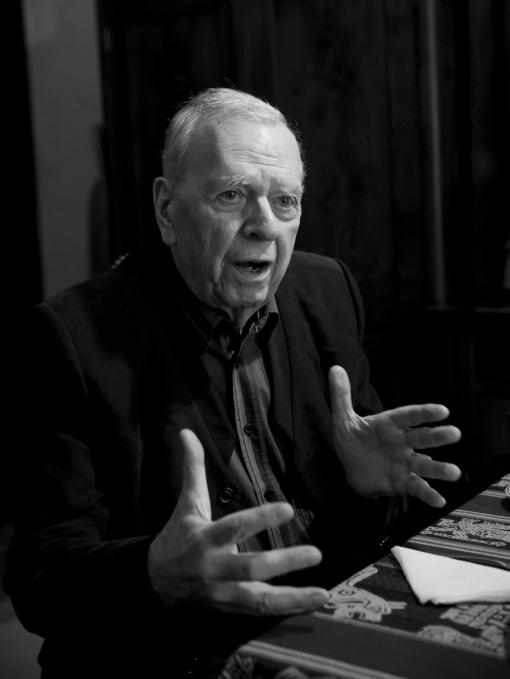The web portal Brno – Music Friendly City is celebrating its sixth birthday. As a symbolic present to our readers we are bringing you the first of our regular monthly contributions from the Brno dramatist, writer and screenwriter Milan Uhde. He will be sharing his memories and thoughts as well as descriptions of current events in the field of culture in Brno. His theme today is the Janáček Brno festival.
As a witness I well recall the Janáček Festival which took place in Brno in 1958. The organisers grasped the situation, in which the eighty-year-old Zdeněk Nejedlý [Trans. - a communist era minister of culture], who had developed from criticising Janáček from an aesthetic perspective into a bilious and hateful censor, was due to his age losing the option of forbidding things. I remember the white-haired conductor Břetislav Bakala and his satisfaction, like that of many other supporters and followers of Janáček’s works. The listeners were overjoyed, but the festival was modest in its scope and deliberately did not seek loud acclaim, so as not to call up an unnecessarily hostile response.
I thought about how on 17 November 2018 in the Janáček Opera I listened to the ceremonial addresses by speakers led by the director of Brno’s National Theatre Martin Glaser introducing the opening performance of the music festival Janáček Brno and at the same time the premiere of Janáček’s The Cunning Little Vixen in the production by the home ensemble. Sixty years later the situation had changed profoundly: the festival was something much grander, the organisers had spread it over eighteen days and had brought in many opera houses, orchestras and soloists, both from the Czech Republic and abroad. In that period Janáček had become a composer whose works are produced the world over.
A certain turning point came in 1956 when that grand musical innovator Pierre Boulez, pupil of Messiaen, composer, conductor and theoretician first encountered Janáček’s work. He later in 2008 performed Janáček with the BBC Symphony Orchestra and admitted that Janáček is his favourite Czech composer. In this way the Moravian Master in a sense officially took his place among the greats of modern music and the Brno festival now has a reasonable prospect of gaining a permanent status in the European music calendar.
I remember how in 2018 the opera company from Cardiff came to Brno with Janáček’s opera From the House of the Dead, where the conductor was the opera’s head and Brno native Tomáš Hanus, and the director David Pountney, a specialist in Janáček. And another guest in Brno was the Flemish Opera with the The Makropulos Affair and with the conductor Tomáš Netopil, where the director was Kornel Mundruczó, an important figure in European theatre and film. Aside from Prague’s National Theatre and their The Excursions of Mr Brouček there were appearances from the company from Poznan, whose Jenůfa was directed by the Latvian director, actor and dramatist Alvis Hermanis. At the same time it is worth mentioning that among the Janáček directors from the past are the famous names of Calixto Bieito, Frank Castorf, Krzysztof Warlikowski, David Radok and Robert Carsen.
On this occasion I want to recall how difficult the obstacles were that Leoš Janáček had to overcome, not only in the early period but even in the years of his creative maturity. Zdeněk Nejedlý condemned Jenůfa as a late and unproductive tribute to folklore. The composer Jaroslav Křiček as a critic publicly stated that Janáček had no grasp of poetics. Karel Kovařovic – who for this Milan Kundera wrathfully described as a mediocre Prague musician – as head of the opera company of the National Theatre persistently, and for a long time successfully, excluded Janáček from the repertoire. The recognised compositional authority Vítězslav Novák contemptuously questioned the best of Janáček’s operas – saying that the author had resorted to a comfortable ease in which he surrendered polyphony and counterpoint. Several critics pointed out that even the master, Antonín Dvořák, admonished his pupil Janáček, to not be afraid of melody and develop it consistently as had been good practice in musical history. On the other hand, the fact that Janáček, despite everything and given the crises of confidence, eventually made it, speaks not only to his perseverance and inner strength, but also in favour of historical optimism, according to which one will eventually gain one’s fair valuation and response.
































No comment added yet..